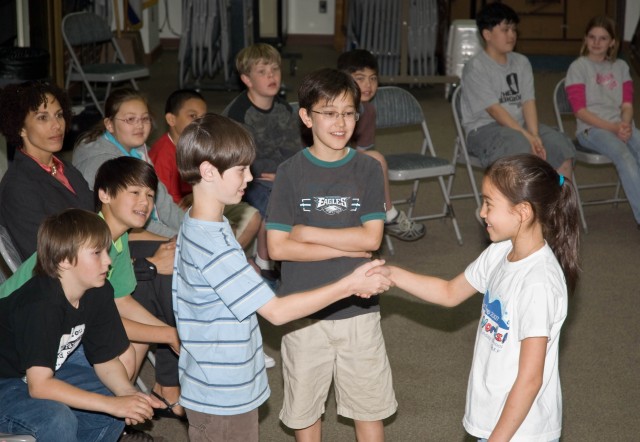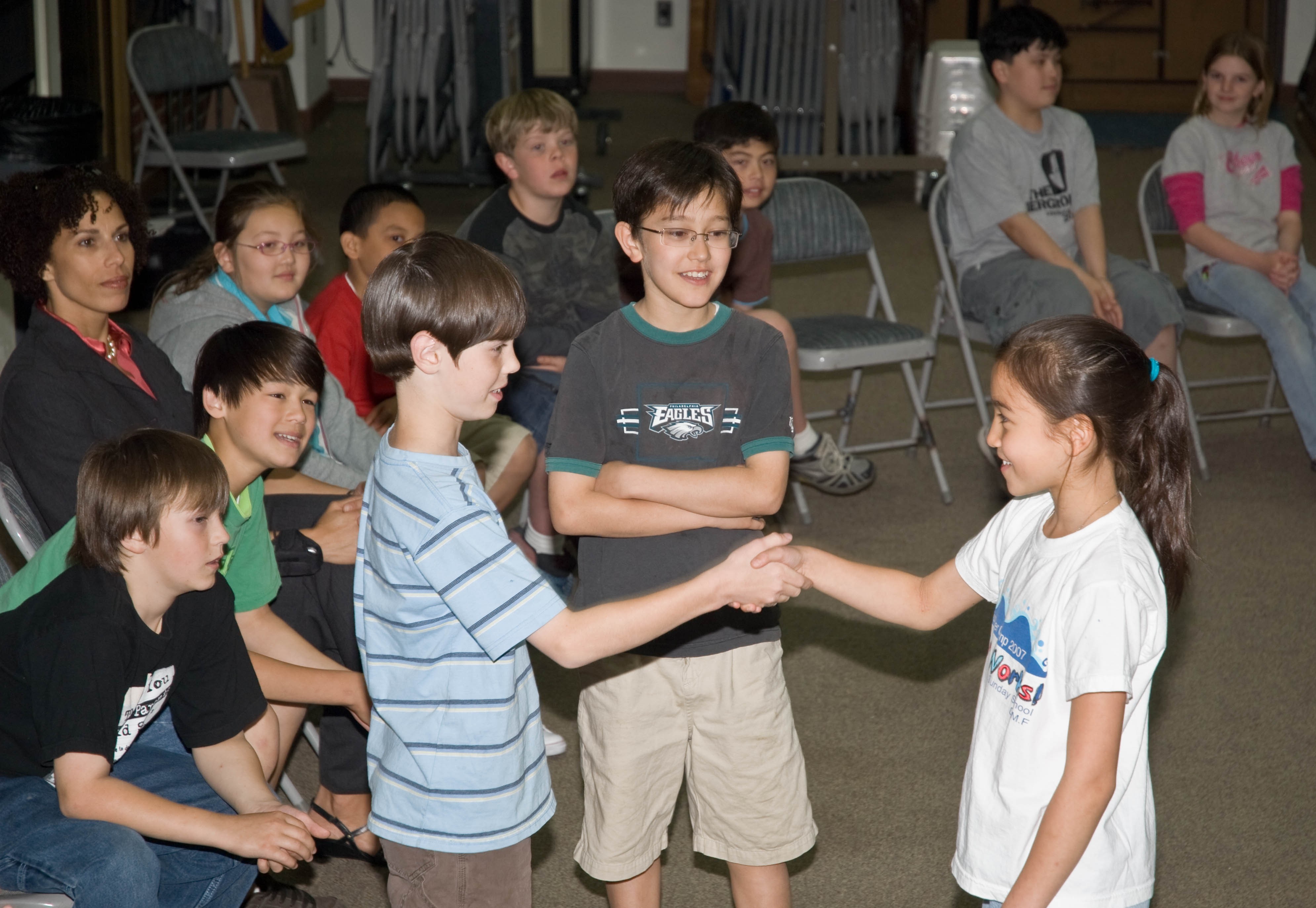
YONGSAN GARRISON, Republic of Korea - Jessica Bates, 10, can't wait until school starts in August. She'll be one of the first faces new children and parents will see when they tour Seoul American Elementary School.
She's one of the Dolphin Delegates, a group of handpicked SAES students who are ambassadors of their school. Their role: to show off SAES to new children and their parents and escort special groups on school tours.
Jessica will be in fifth grade next year. "I wanted to be a Dolphin Delegate because I like to meet new people and show people around the school," she said. "One thing I like about the school is that the teachers are nice and fun."
Normally, SAES counselors provide school orientations for new families. Now, the Dolphin Delegates will help with that task. Program organizers say it will help new children at SAES feel more comfortable with their new surroundings, and for the Delegates, increase their own confidence when they move to a new school.
"We do orientation all the time when new students and families come in," said Cynthia Hilgartner, second and third grade guidance counselor at SAES. "We field their questions, show them the facilities and interject things that might not even have to do with the school, like youth services programs available here. But the more that we did that, the more we realized the kids themselves would like to see a friendly face from another peer."
The Dolphin Delegates idea was borne from a brainstorming session in November on other ways schools can assist families with transitions. Representatives from Department of Defense Dependent Schools in South Korea met at Osan Air Base to attend a Military Child Education Coalition Transition Counselor Institute training program, which focuses on teaching school counselors, administrators and volunteers methods to support and accommodate military students in transition. The training was organized by the U.S. Forces Korea Partners in Education program.
"Turnover in Korea is high, so we really have to aggressively pursue transition initiatives," said Chad Lucy, USFK's Partners in Education coordinator.
From that meeting, SAES decided to create the Dolphin Delegates.
"It was easy to do, because the middle school has the Bulldog Ambassadors programs, and the high school has a strong student-to-student program," Lucy said. "So now, not only will they be greeting new kids, but when they move to middle school, it eases transition not only into the community but from school to school."
Each delegate was handpicked and recommended by their teachers. The students had to submit nomination packages that were reviewed by a panel. The panel also interviewed the students.
"I think our hope was that we get kids more involved," Hilgartner said. "We're always teaching kids about character education and getting to know other kids. I think the premise is the more we get to know other people, the less likely we are to be unkind to them."
This was evident during the program's third training session May 8. The delegates learned the finer points of escorting a visitor around the school, explaining what the school has to offer, and responding to potential questions from newcomers.
The training was led by Army Family Team Building Master Trainers Lucy and Julia Armstrong, along with Judith Fandrich, an AFTB instructor and parent representative.
"Yongsan's AFTB program is involved in training opportunities throughout the community," Lucy said. "Although AFTB training modules are targeted at teenagers and adults, many of the classes and materials have practical community building applications. This targeted class demonstrated platform skills, public speaking and customs and courtesies in a fun and age-appropriate way, complete with role-playing exercises for the students."
Lucy said it's better when children show off their school. "Of course, parents want to talk to the principal and the staff. But the students are the ones who can share the spirit of the school. Not only are we promoting youth leaders, we're giving them an incentive to want to move to middle school and be part of that experience."
Zach Brehm, 11, is one of those. A fifth grader, he's moving to the middle school next year to hopefully join the SAMS Bulldog Ambassadors program. "I'm good with people and I like helping people out," he said.
The result of these programs is children getting along with others and having stronger social skills, which follows another program Hilgartner explained called Responsive Classroom. This program, along with Dolphin Delegates, Peer Mediation, and others, are designed to emphasize social, emotional and academic growth.
"It's peer mediation," she explained. "Kids these days spend too much time solo, hiding behind a computer, playing video games. They lose a lot of basic social skills."
She said studies have shown in schools that have these types of programs, fewer bullying and bad behavior incidents are reported. "Kids are able to get along and figure out their own problems and work out their solutions," she said.

Social Sharing